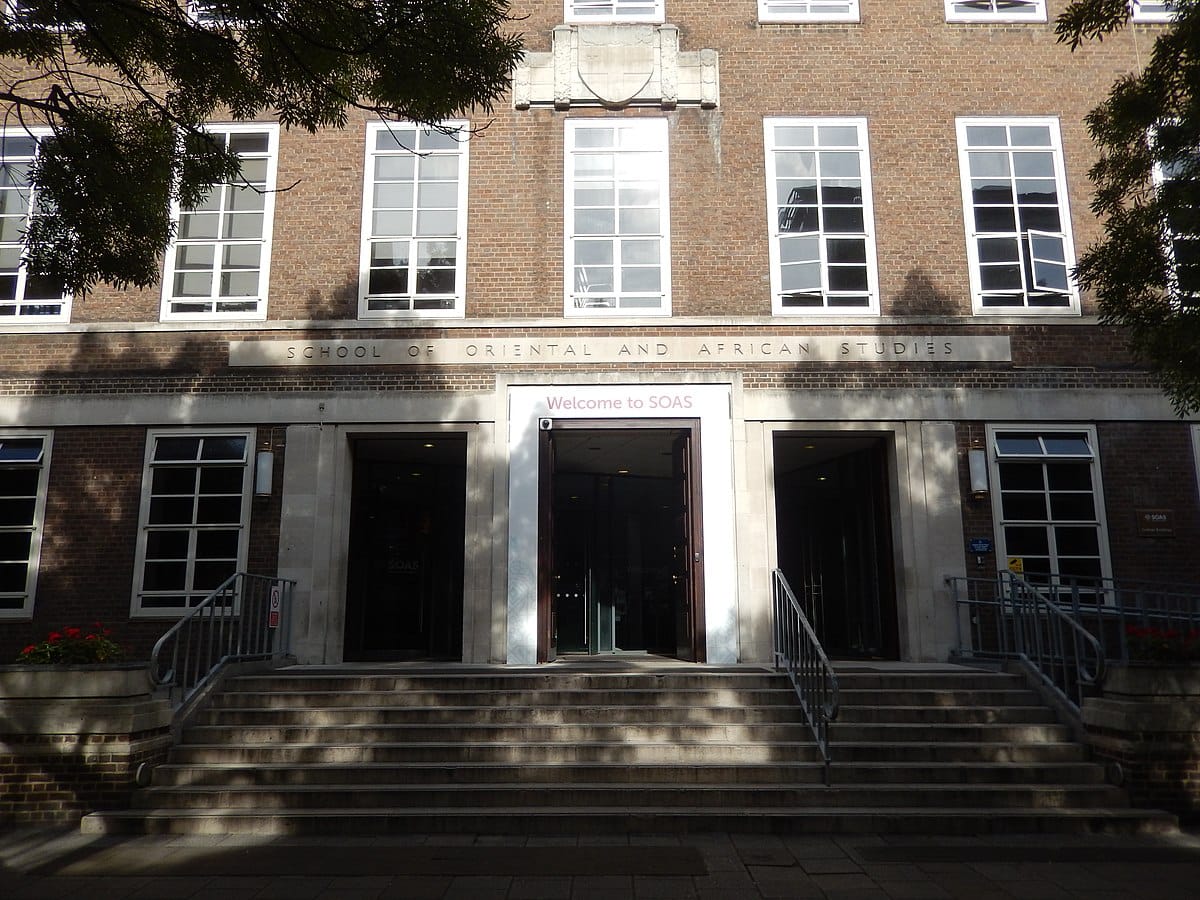The Restructuring of My Course Was a Disgrace

By Ella Dorn, BA Chinese and Linguistics
It’s in vogue to complain about Adam Habib. He sterilised the SU bar and cracked down on campus security. Nobody mentions the elephant in the room – the academic side of his reign.
In the summer of 2020, almost every SOAS course was either cut entirely or restructured. The university got rid of a huge 247 modules in total and made other modules mandatory. On my joint honours degree, the change was noticeable and negative. What survives now is a Kafkaesque maze of a course. Compulsory modules appear to be implemented at random. There is little sense of progression, breadth, or choice.
Take ‘History and Memory in East Asian Cultures’, a final-year module compulsory for all students enrolled on BA courses in Chinese, Japanese or Korean. Those of us on the Chinese course have no idea why we’re supposed to be taking the class. Most of the module content focuses on Japan’s WW2-era human rights abuses in Korea. Only the final two lectures feature discussions of Chinese politics, and despite a wealth of atrocities to choose from, just one lecture covers an event occurring on Chinese soil (the Nanjing Massacre). Much of the lecture content overlaps with that of another compulsory Year 2 module, ‘East Asian Imperialisms’. We are studying one of the most widely-spoken languages in the world, but have been relegated to an afterthought on our own course.
“You’re doing a language degree,” says my classmate, “but the language module is optional and this crap is compulsory.”
It isn’t clear why the module couldn’t have been taught thematically, with case studies throughout from all three regions – or why it was made compulsory in the first place. Before the restructuring, there had been no mandatory history class in the final year of SOAS’s undergraduate Chinese degree. Students had far more choice. A benefit of language degrees is that they’re meant to be interdisciplinary, covering the whole width of the humanities. Those with unavoidably full timetables are no longer able to make the most of the expertise available at SOAS. Call this modular bloat.
The best module I’ve taken all year, ‘Introduction to Classical Chinese Thought’, is off-limits to my friends doing the single-honours Chinese BA. You’d think the final year of a degree would be the best time to have free modules, but that term they had none. I was the only Chinese-language student taking the class, which runs in the Department of Religions and Philosophies and relies on small-group teaching. A strong basis in influential traditions like Confucianism and Daoism would surely be more useful to a future Sinologist than our compulsory History and Memory module, in which China barely gets a mention.
One also wonders about cases where the restructuring ushered in entirely new modules. In Linguistics, my other subject, first-year students now have to take a module called ‘Language, Learning and Writing’. This seems innocuous enough until you realise its academic and theoretical content is minimal – it’s a skills course. A portion of the module is about “how to learn languages,” covering parts of speech and the International Phonetic Alphabet – both of which are already taught, in detail and to great effect, in dedicated syntax and phonology modules. You’ll also learn how best to write and reference an essay. At the end, there are classes on “applying for jobs and internships” and “writing a CV.” Forget that SOAS already has dedicated staff who are trained to teach these skills, as well as multiple resources available for students to access online. For many students, those 15 credits could have been spent on something rigorous and world-expanding. I still remember using a spare module in my first year to take an introductory class about Zoroastrianism, something you probably couldn’t do anywhere else.
We talk about ‘vanity publishing’. Writers pay for the illusion of prestige. History and Memory may be one example of a ‘vanity module’, with similarly artificial benefits on offer for its creators. East Asian Languages and Cultures get to drive up their departmental engagement statistics. Individual academics get a captive audience for their topics of interest, even if they are not necessarily interesting to anyone else. In a cut-throat academic job market, delivering a high-enrolment module surely makes for a compelling CV boost. There’s no need to state that your attendees were forced to turn up. The university itself saves money – hundreds of people are crammed into one lecture theatre and taught by one narrowly specialised lecturer at a time. In the end, everyone wins, apart from the students.
A 2020 statement on the university’s ‘transformation plan’ emphasises “financial strength” in the wake of COVID-19. The restructuring would likely never have happened without Cameron’s paid tuition model: we can blame the marketisation of the higher education sector for many of the University’s shortcomings today.
But nobody told SOAS to rewrite its Chinese degree to include inexplicably narrow compulsory modules, delivered within ideological paradigms that will eventually become outmoded. Nobody in the government tried to prevent students from choosing ancient Chinese philosophy over Japanese modern history. This was a departmental decision. There may well have been panic about post-grad employment figures that pushed in the CV classes, but their mandatory delivery, and integration with the Linguistics curriculum, were all internal. (I doubt the Linguistics lecturers, who conduct interesting research of their own, actually want to be doubling as career coaches). The 2020 restructuring was rushed, careless, and self-centred. SOAS proves that it’s just as possible to devalue the humanities from within as from outside.



